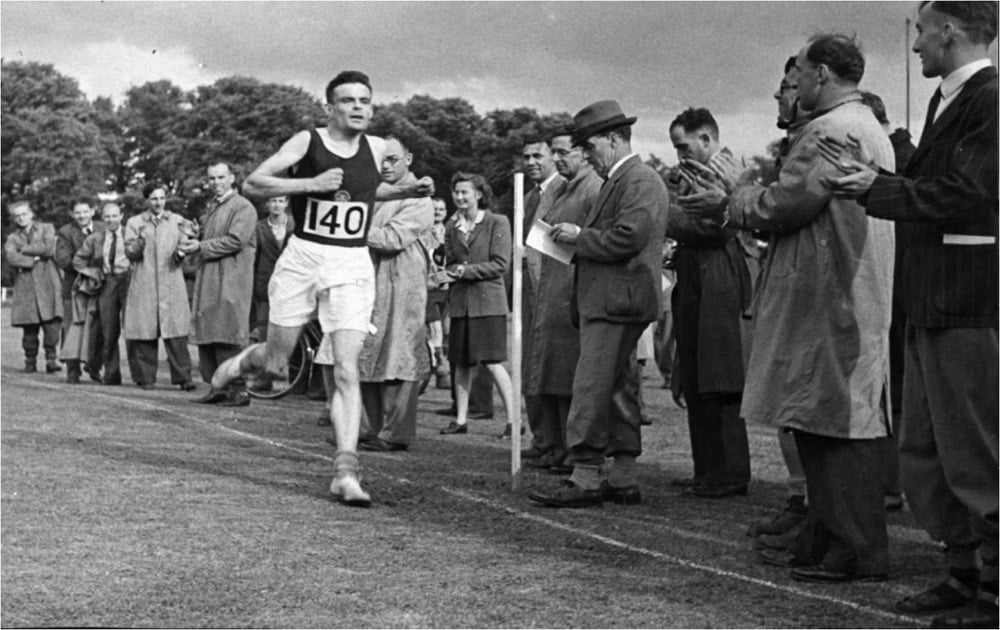
The Bank of England unveiled the final design of the new £50 banknote honoring mathematician and computer scientist Alan Turing.
Commenting on the new note, Governor Andrew Bailey said: “There’s something of the character of a nation in its money, and we are right to consider and celebrate the people on our banknotes. So I’m delighted that our new £50 features one of Britain’s most important scientists, Alan Turing. Turing is best known for his codebreaking work at Bletchley Park, which helped end the Second World War. However in addition he was a leading mathematician, developmental biologist, and a pioneer in the field of computer science. He was also gay, and was treated appallingly as a result. By placing him on our new polymer £50 banknote, we are celebrating his achievements, and the values he symbolises”.
The note will be placed into circulation beginning June 23, 2021. As part of the introduction of the note, GCHQ (the successor agency to the one Turing worked for) has created a series of 12 puzzles for folks to decipher. Good luck!

Computer scientist, mathematician, and all-around supergenius Alan Turing, who played a pivotal role in breaking secret German codes during WWII and developing the conceptual framework for the modern general purpose computer, was also a cracking good runner.
He was a runner who, like many others, came to the sport rather late. According to an article by Pat Butcher, he did not compete as an undergraduate at Cambridge, preferring to row. But after winning his fellowship to King’s College, he began running with more purpose. He is said to have often run a route from Cambridge to Ely and back, a distance of 50 kilometers.
It’s also said Turing would occasionally sometimes run to London for meetings, a distance of 40 miles. In 1947, after only two years of training, Turing ran a marathon in 2:46. He was even in contention for a spot on the British Olympic team for 1948 before an injury held him to fifth place at the trials. Had he competed and run at his personal best time, he would have finished 15th.
As the photo above shows, Turing had a brute force running style, not unlike the machine he helped design to break Enigma coded messages. He ran, he said, to relieve stress.
“We heard him rather than saw him. He made a terrible grunting noise when he was running, but before we could say anything to him, he was past us like a shot out of a gun. A couple of nights later we caught up with him long enough for me to ask who he ran for. When he said nobody, we invited him to join Walton. He did, and immediately became our best runner… I asked him one day why he punished himself so much in training. He told me ‘I have such a stressful job that the only way I can get it out of my mind is by running hard; it’s the only way I can get some release.’”
I found out about Turing’s running prowess via the Wikipedia page of non-professional marathon runners. Turing is quite high on the list, particularly if you filter out world class athletes from other sports. Also on the list, just above Turing, is Wolfgang Ketterle, a Nobel Prize-winning physicist who ran a 2:44 in Boston in 2014 at the age of 56.
The Imitation Game is a historical drama about Alan Turing, focusing on his efforts in breaking the Enigma code during WWII. Benedict Cumberbatch plays Alan Turing. Here’s a trailer:
A supercomputer running a program simulating a 13-year-old boy named Eugene has passed the Turing Test at an event held at London’s Royal Society.
The Turing Test is based on 20th century mathematician and code-breaker Turing’s 1950 famous question and answer game, ‘Can Machines Think?’. The experiment investigates whether people can detect if they are talking to machines or humans. The event is particularly poignant as it took place on the 60th anniversary of Turing’s death, nearly six months after he was given a posthumous royal pardon.
If a computer is mistaken for a human more than 30% of the time during a series of five minute keyboard conversations it passes the test. No computer has ever achieved this, until now. Eugene managed to convince 33% of the human judges that it was human.
I’m sure there will be some debate as members of the AI and computing communities weigh in over the next few days, but at first blush, it seems like a significant result. The very first Long Bet concerned the Turing Test, with Mitch Kapor stating:
By 2029 no computer — or “machine intelligence” — will have passed the Turing Test.
and Ray Kurzweil opposing. The stakes are $20,000, but the terms are quite detailed, so who knows if Kurzweil has won.
Update: Kelly Oakes of Buzzfeed dumps some cold water on this result.
Of course the Turing Test hasn’t been passed. I think its a great shame it has been reported that way, because it reduces the worth of serious AI research. We are still a very long way from achieving human-level AI, and it trivialises Turing’s thought experiment (which is fraught with problems anyway) to suggest otherwise.







Stay Connected